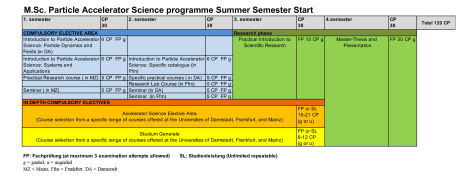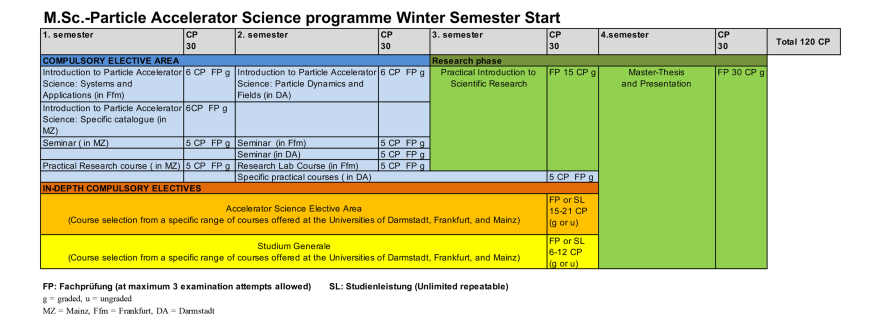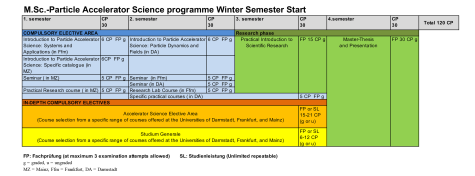Are you searching for the Higgs Boson or Dark Matter? Do you want to tailor materials to your needs? Would you like to cure cancer, study nuclei and their role in the Universe, or look into the heart of matter? Particle accelerators will help you do that.
M.Sc. study program “Particle Accelerator Science”
General Information
The M.Sc. study program “Particle Accelerator Science” is an English-language cooperative program between Technical University of Darmstadt (TUDa), Johannes Gutenberg University Mainz (JGU) and Goethe University Frankfurt am Main (GU) as part of the strategic alliance between the Rhein-Main Universities (RMU). In this program, the next specialist in Particle Accelerator Science is always no more than a one-hour train ride away.
Study regulations
Below you will find the study regulations for the English degree programme Master of Particle Accelerator Science. These contain, for example, a study plan, information and interesting facts about the course of studies. The admission requirements / entry competences for the Master of Particle Accelerator Science can be found in the examination regulations.
Examination Regulations (Studienordnung, gültig ab 01.04.2026) (wird in neuem Tab geöffnet)
Under reserve until 1 December 2025
Module description (wird in neuem Tab geöffnet)
Under reserve until 1 December 2025
Study and examination plan (wird in neuem Tab geöffnet)
Under reserve until 1 December 2025







